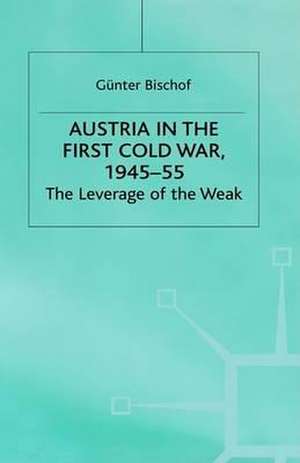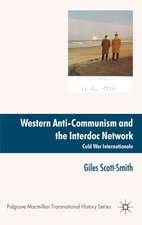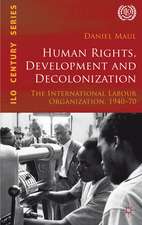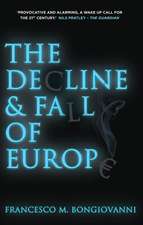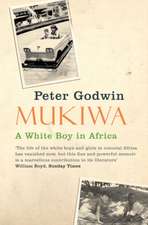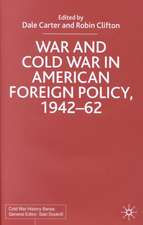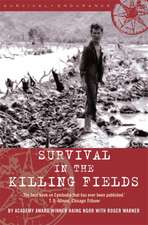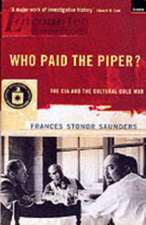Austria in the First Cold War, 1945-55: The Leverage of the Weak: Cold War History
Autor G. Bischofen Limba Engleză Hardback – 12 aug 1999
Din seria Cold War History
-
 Preț: 310.56 lei
Preț: 310.56 lei -
 Preț: 334.09 lei
Preț: 334.09 lei - 15%
 Preț: 642.83 lei
Preț: 642.83 lei -
 Preț: 440.97 lei
Preț: 440.97 lei - 24%
 Preț: 322.92 lei
Preț: 322.92 lei -
 Preț: 486.17 lei
Preț: 486.17 lei - 28%
 Preț: 824.80 lei
Preț: 824.80 lei - 48%
 Preț: 571.12 lei
Preț: 571.12 lei -
 Preț: 320.09 lei
Preț: 320.09 lei - 18%
 Preț: 1054.75 lei
Preț: 1054.75 lei - 15%
 Preț: 639.41 lei
Preț: 639.41 lei - 15%
 Preț: 643.65 lei
Preț: 643.65 lei - 18%
 Preț: 1060.87 lei
Preț: 1060.87 lei - 15%
 Preț: 639.90 lei
Preț: 639.90 lei -
 Preț: 340.47 lei
Preț: 340.47 lei -
 Preț: 489.57 lei
Preț: 489.57 lei - 18%
 Preț: 1122.47 lei
Preț: 1122.47 lei - 28%
 Preț: 820.32 lei
Preț: 820.32 lei -
 Preț: 433.30 lei
Preț: 433.30 lei -
 Preț: 469.38 lei
Preț: 469.38 lei - 15%
 Preț: 648.89 lei
Preț: 648.89 lei - 18%
 Preț: 1058.69 lei
Preț: 1058.69 lei - 18%
 Preț: 1223.30 lei
Preț: 1223.30 lei - 15%
 Preț: 640.88 lei
Preț: 640.88 lei - 28%
 Preț: 848.31 lei
Preț: 848.31 lei -
 Preț: 482.53 lei
Preț: 482.53 lei - 15%
 Preț: 644.18 lei
Preț: 644.18 lei - 26%
 Preț: 849.29 lei
Preț: 849.29 lei - 26%
 Preț: 821.10 lei
Preț: 821.10 lei - 15%
 Preț: 642.18 lei
Preț: 642.18 lei - 15%
 Preț: 640.71 lei
Preț: 640.71 lei - 24%
 Preț: 325.02 lei
Preț: 325.02 lei - 15%
 Preț: 639.90 lei
Preț: 639.90 lei -
 Preț: 484.08 lei
Preț: 484.08 lei - 15%
 Preț: 643.16 lei
Preț: 643.16 lei - 28%
 Preț: 821.14 lei
Preț: 821.14 lei - 15%
 Preț: 644.30 lei
Preț: 644.30 lei - 15%
 Preț: 432.12 lei
Preț: 432.12 lei - 26%
 Preț: 850.73 lei
Preț: 850.73 lei -
 Preț: 386.39 lei
Preț: 386.39 lei
Preț: 945.47 lei
Preț vechi: 1153.02 lei
-18% Nou
Puncte Express: 1418
Preț estimativ în valută:
180.91€ • 189.40$ • 149.70£
180.91€ • 189.40$ • 149.70£
Carte tipărită la comandă
Livrare economică 05-19 aprilie
Preluare comenzi: 021 569.72.76
Specificații
ISBN-13: 9780333725474
ISBN-10: 0333725476
Pagini: 237
Ilustrații: XVII, 237 p.
Dimensiuni: 140 x 216 x 19 mm
Greutate: 0.45 kg
Ediția:1999
Editura: Palgrave Macmillan UK
Colecția Palgrave Macmillan
Seria Cold War History
Locul publicării:London, United Kingdom
ISBN-10: 0333725476
Pagini: 237
Ilustrații: XVII, 237 p.
Dimensiuni: 140 x 216 x 19 mm
Greutate: 0.45 kg
Ediția:1999
Editura: Palgrave Macmillan UK
Colecția Palgrave Macmillan
Seria Cold War History
Locul publicării:London, United Kingdom
Cuprins
Preface and Acknowledgements Introduction PART I: THE AUSTRIANS' ROLE AND ALLIED PLANNING DURING WORLD WAR II No Indigestion: The Anschluss Perpetrators and Victims: Austrians in World War II Between Responsibility and Rehabilitation: Allied Planning for Postwar Austria PART II: THE ANGLO-SOVIET COLD WAR OVER AUSTRIA, 1945-46 The Rape of Austria: Liberation Soviet-Style The Looting of Austria: The Soviets and Austrian Reparations The Showdown: British Containment of Soviet Action PART III: PRESENT AT THE CREATION OF AUSTRIAN FOREIGN POLICY, 1945-46 The Agenda: Investing a Usable past The Campaign: Selling a Usable Past Whither Austria? Between East and East PART IV: AUSTRIAN ECONOMIC MALAISE: SOVIET-AMERICAN COLD WAR OVER AUSTRIA, 1946-47 The Take: Soviet Economic Pressure and the Origins of the Cold War in Austria The Dilemma: Austrian Economic Problems The Response: Washington and Austrian Economic Recovery PART V: IN THE SHADOW OF GERMANY: THE MILITARIZATION OF THE COLD WAR IN AUSTRIA, 1948-52 A Treaty: Austrian Treaty Negotiations in the Shadow of Germany No Treaty: The Communist Threat and the Militarization of Austria Short Treaty? The Ice Age of the First Cold War PART VI: AFTER STALIN'S DEATH: 'PEACEFUL COEXISTENCE' AND THE CONCLUSION OF THE AUSTRIAN TREATY, 1953-55 Peaceful Coexistence? The Western Response to Stalin's Death No Coexistence: The Berlin CFM and the Demise of Austrian Treaty Diplomacy The Leverage of the Weak: The Culmination of Austro-Soviet Bilateral Diplomacy and the Conclusion of the Austrian Treaty Conclusion Notes and References Select Bibliography Index
Recenzii
'...richly documented, provocative and full of valuable insights.' - Professor Wolfgang Krieger, Philipps-Universität, Marburg
'Bischof provides by far the most authoritative account available of the extraordinary process by which the postwar leadership of Austria maintained the country's unity and independence while navigating among the varying pressures of the four occupying powers and the competing domestic forces. Based on vast new evidence from each of the countries involved, his analyses of the political effects of Soviet economic depredations and the creation of a new national myth to sidestep Austria's Nazi past are compelling.' - Vojtech Mastny and Kathryn Weathersby, The Norwegian Nobel Institute
'Bischof provides by far the most authoritative account available of the extraordinary process by which the postwar leadership of Austria maintained the country's unity and independence while navigating among the varying pressures of the four occupying powers and the competing domestic forces. Based on vast new evidence from each of the countries involved, his analyses of the political effects of Soviet economic depredations and the creation of a new national myth to sidestep Austria's Nazi past are compelling.' - Vojtech Mastny and Kathryn Weathersby, The Norwegian Nobel Institute
Notă biografică
GÜNTER BISCHOF is an Associate Professor of History and the Associate Director of Center for Austrian studies at the University of New Orleans. He has taught as a guest professor at the Universities of Salzburg (1998), Vienna (1998), Innsbruck (1993-4) and Munich (1992-4) and also lectured at the Austrian Diplomatic Academy (1998). He was appointed a guest scholar at the Institute of Human Sciences in Vienna (February 1998). He is founding co-editor of Contemporary Austria Studies (6 vols, Transaction, Rutgers University) and the Eisenhower Center Studies of War and Peace (7 vols, Louisiana State University Press). He has co-edited a dozen books and written some three dozen articles on the history of World War II military history and POW treatment, early Cold War diplomacy and Austrian contemporary history. His Harvard dissertation Between Responsibility and Rehabilitation: Austria in International Politics 1940-50 won prizes both from the Harvard History Department and the Austrian Ministry of Science. He won an undergraduate teaching prize at Harvard and won the Early Career Achievement Award from the UNO Alumni Association.
